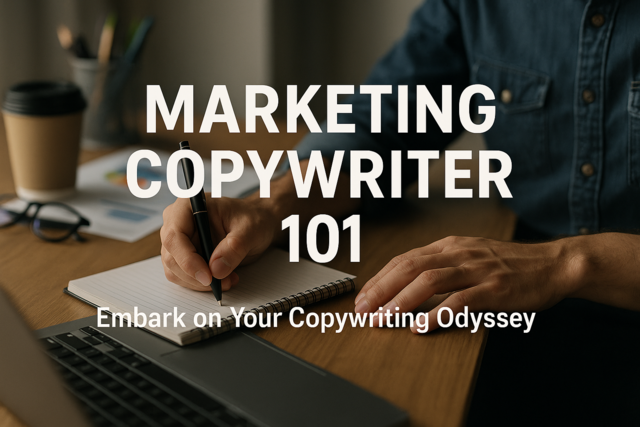Before we get started, a blog is a site where articles are published. These can be informational posts, marketing-based posts, discussion posts -- whatever the author wants them to be. As a freelance writer, you will often be asked to write blog posts that contain keywords in order to drive traffic to a website (or blog).
If you have a blog, you know that all of the articles you post to your site are called blogs, and these are then published on the Internet. Typically, the posts are displayed with the most recent post first.
If you blog, even if it is not in the hopes of selling goods or services, you probably want someone to actually read your post. Search engine optimization applies to blog posts, too. This is what will drive readers to your post, and get them to read it.
SEO applies to your posts in the same way it applies to client articles, or even to your website. Driving traffic to your post will allow readers the chance to stick around, browse, read what you have to offer.
As you know, great content is the key to SEO and SERP, but you should also be aware of other things that can truly make a difference if someone is searching for content, or looking for you via a search engine.
Blog Writing
With your blog writing, as with your article writing, you should keep in mind that a short title, one that is easy to spell (imagine all of the misspellings when people search -- and note that not every search engine offers correct spelling suggestions, like Google does), and one that contains your main keyword.
Again, even if you are not actively selling a product or service with your blog post, you may be intending to bring potential customers to your website, hoping they will stick around after they read your post, and see what you have to offer. This is also where those links play a major role. Make sure that your keyword is in an active link, so that the potential customer follows it to where you want them to go (and maybe spends some money with you, or with your client).
When you write that title, the main keyword should be the first word if possible. But if that makes your title read poorly, don't worry too much about it, just have the keyword placed in your title somewhere. The title is, hopefully, short and sweet, anyway, so the keyword will be featured prominently.
When you are blogging for yourself, and trying to come up with your own keywords, just note that the best keyword is one that is relevant to what you are writing about, and one that can be found in your post. If you are writing about dogs, but your keyword is umbrella, it just will not work (not usually anyway). Make your article about umbrellas in that case, or make your keyword something that has to do with dogs.
Strong SEO Blogs
The strongest SEO article is when in which the main keywords appear in the first paragraph (preferably in either the first or second sentence), and is between 2 percent and 3 percent of the text -- in other words, a keyword density of 2 percent to 3 percent).
Don't freak out if the keyword doesn't fit that density. The world will not end, and your ranking won't fall too far, but you should remember the rule and try to get it to those numbers if you can.
Images
When you add an image to your blog post, give it an alternate title. This is what appears if/when a browser cannot interpret the image from your page. It will, instead, show text. You have probably seen this yourself from time to time. In that text block, make sure to write tags that allow both the search engine and the reader to know what should be there, and make it one of your keywords, to help with the SEO.
For example, if you are writing a blog about dogs, with keywords such as "puppy" or "Labrador,", and your picture is of your Labrador puppy, add text such as "Labrador" or "puppy" to the alt text block, so those keywords show up.
Search engines actually love to look for these tags, so if this is your blog we are talking about, make sure to fill them in. These are called meta-tags and this is where you fill in those keywords, which help to describe your post.
All blogging platforms offer you the opportunity to fit these into your posts, so take advantage of that. This is just another great chance to add your keywords and increase your SERP! They don't just help with SERP and SEO, though, they are also very handy when you are working on your own blog and searching your archives for pictures and text information.
Affiliate Links
Writing blog articles of high quality SEO will provide you with the ability to refer your potential buyers to purchase a specific product and earn affiliate fees. How so? By linking your content to other sites.
When you bring readers to your site, via your SEO content, you can hyperlink them to other sites, and this is called affiliate marketing. This is a great way to earn money from your blog, and from SEO content that you write for your own site.
For example, if you were a personal trainer, you would want to bring new clients to your site. Once they were there, you might want to suggest that they purchase fitness-related items from another site, such as Cathe.com. Cathe.com is owned by Cathe Friedrich, who has a fitness empire. She also has an affiliate program. Her affiliate program allows you to link to her site, via a personalized link that you would be given when joining her affiliate program:
http://www.cathedownloads.com/affiliate-program/
Then, when you post these links on your site (as sidebar ads) or even in your content, the reader would then be redirected to Cathe.com and with every purchase they made, you would make a 25% commission! Simple as that. All you need to do is be an affiliate. No matter what your blog topic, there are sure to be some products that you like, and would love to refer people to. If that site has an affiliate program, all you need to do is sign up, post their links or ads on your site, and start making money.
Of course, all of this depends upon the traffic to your blog or website, and you increase that traffic via your excellent SEO copy!
SEO copywriting can be lucrative, if you know what you are doing, of course (which is why you are taking this class!), and if you find the right clients.
Where to Find Clients
Generally, the clients that are looking for SEO content fall into one of these categories:
-
Public Relations
-
Social Media
-
Email Marketing
-
Blogging
We have talked about blogging already, and you know that blog posts are often used to draw new customers in, or link customers from a blog post to a product. In other words, they are used to make money.
When writing for the other categories listed above, SEO copy will be used for the same thing, to make money.
Social media marketing, while no longer "new," is lucrative -- and one of the fastest-growing ways to market a product. Social media marketing includes product placement, ads, status updates, tweets, and so forth on Twitter, Pinterest, Instagram, Facebook, etc. Often times, a client will ask you to write the article, as well as a status update and tweet, to go along with the piece, so they can link your content to a quick blurb about the product or service.
Public relations firms are always in need of good SEO copy. They will have you write press releases or even inverted pyramid (news-style) articles about a product, person, company, service, etc, to garner good publicity, and link the reader to another page, selling a product or service, (or garnering attention for a person, an event, a product, etc).
And finally, email marketing, which is perhaps -- right now -- one of the most lucrative ways companies use SEO to target customers or prospective customers. Email marketing is not just spam. It is also those newsletters you willingly sign up for, perhaps from your favorite company, or from a company that is sponsoring a contest, or offering a coupon or discount. They typically have a little box you can check that allows them to contact you by email.
The email marketing is then targeted toward you, as a customer (or potential customer). The company will send you tips, coupons, discount codes, sometimes even birthday greetings or freebies on your special day. All of this email marketing is targeted, and it involves SEO. Not so much because of what lands in your inbox, although the links and headers in the copy tend to be important, but also because most of the newsletters a company sends out are also found somewhere on their website, so that searchers can find it when they are simply Googling.
To find these clients, you have to know where to look, or how to draw them to you. And guess what? In order to draw in clients, you need to have a website, and (drum roll, please) that website needs SEO content in order for your clients to find you! No SEO content, no clients -- and by the way, if you want to prove to a client that you can write SEO, they need to see examples on your professional website. If you do not have SEO copy, a) the clients won't find you and b) how will they know what you can do?
If you already have a website dedicated to freelance writing, I suggest going back and making sure that your copy is SEO. If it is not, think of adding new posts to draw clients to you.
In the meantime, there are a number of websites out there for freelancers. These are sites that will help connect you with clients, until you get your freelancing business on its feet. A good web search will take you to them. Do your homework with each of these sites, though, and look for those that have good reviews.
On these types of websites you can typically list your services, look for assignments, and take on those that fit your skill set. Some sites will ask you to pass a copywriting test, perhaps an English/grammar test, and even an SEO test (which will be so easy for you after this class!).
The Pitch
Usually for freelancers, the problem is the pitch. No matter how long you have been writing, selling yourself to the client may be nerve wracking.
When you pitch yourself to the client, you are telling him or her why you would make the best copywriter for the article or project in question. You lay the groundwork. You explain your experience. You hit the high notes and you keep it simple, all while trying to win them over, and win the project.
Think of your pitch as your resume. This is your first time corresponding with the client, and you want to win this job! Yes, you can attach your resume, but in freelance writing, often it is not the resume that wins the job, but the pitch. The words you write in that pitch show how you will write for that client.
When you write to the client, do not ramble. They do not have time, nor do you. They want the project started, and you need to get back to looking for other freelance pieces to write!
You need to list your qualifications (what have you done in the past, how long have you been writing, what did you do before, why does this piece speak to you, what do you know about the subject, etc), thank them, and get out of there.
Think of the pitch as an audition. Often, when you read "the pitch," it refers to pitching a new idea to a publication or editor, but here, we are using it as in "pitching" yourself -- showing why you are the best writer for the job.






















